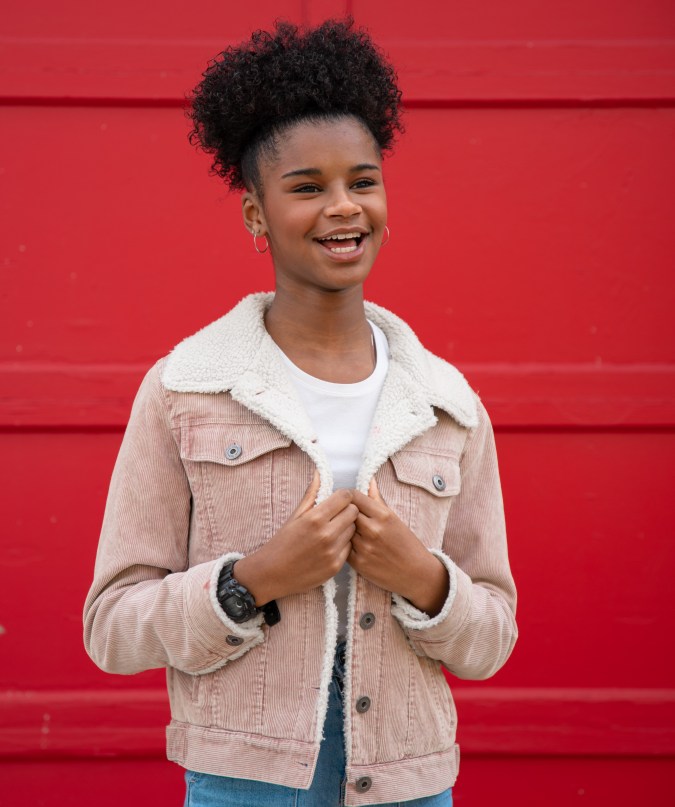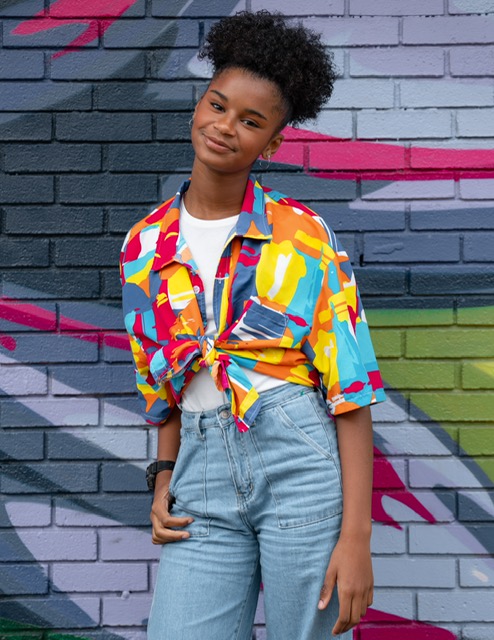When Marley Dias was ten years old she launched a campaign to collect children’s books featuring Black girls as the lead character. The viral campaign, #1000BlackGirlBooks, launched in 2015 and the movement has collected more than 12K books to date.
“When we make space for different voices to be heard, known, appreciated and valued, then we are being inclusive,” she tells Remezcla. “When we are engaged in work that doesn’t just focus on what we get as an individual but rather how we all can benefit, then we are committed to social change.”
The 15-year-old—who is of Jamaican and Cape Verdean descent—went on to publish her own book, Marley Dias Gets it Done and So Can You!. The 2018 release is a guide for youth that explores topics including activism, social justice, and using social media for good, drawing from her own experiences to show kids how they can make a positive change in their community. She recently hosted an online class with that same intention as part of Airbnb’s online experiences where kids got her advice on how to solve a problem or champion a cause.
I am choosing to live more.
In it, she shared tips like coming up with a memorable name for your campaign and working with adults to gain support while also emphasizing that what matters most is “passion, fuel and drive.”
“Equity, inclusivity, and social change are really important things for me because I believe they are the foundations for a kind and just society. When we think about and create opportunities that consider how history shapes people’s access to resources, then we can be more equitable,” she tells us.
Continuing with her efforts for equity in literature she partnered with Netflix and released Bookmarks: Celebrating Black Voices, a 12-episode series featuring celebs including Karamo Brown, Tiffany Haddish, and Lupita Nyong’o reading children’s books from Black authors. In addition to hosting the show—which came out in September—Dias is also an executive producer.
Equity, inclusivity, and social change are really important things for me.
“I hope that the world will come to acknowledge that Black girls and by extension all Black people, thoughts, ideas, and lives matter,” she says of what she hopes viewers get from the show.

Dias’ work stems from her passion for books and a need to encourage young people to not only read but to expose themselves to books about new and different groups of people. Dias emphasizes the importance of finding books that reflect who you are but to also discover other worlds because “learning about others will make you a kinder and more joyful person.”
I want to see us combine our emotions with facts.
Having now spent her teen years (so far) devoted to working as a young, prominent Black activist leader hasn’t been without challenges. She shares that, at one point, she felt her life resembled that of Hannah Montana with dual identities as an activist and student. In fact, she didn’t feel pride in her work initially. Dias intentionally did not bring her activism into her daily life because she felt like her friends wouldn’t understand and that others would only want to know her because she spent time with celebrities.
“Now that I am older I own my full identity,” she tells us. “I am a student-activist and I am no longer compartmentalizing my life. I am choosing to live more out loud and to integrate my worlds.”

When it comes to fellow youth activists, her advice is two-fold: use your passion to help solve problems in your community and focus on local issues versus trying to deal with larger societal problems. She also emphasizes the importance of pursuing a passion and being knowledgeable about the facts related to it as youth can easily get caught up in emotions when it comes to social justice movements.
“My hope is that more youth will feel like they can make a difference in the world,” she says. “[That they] will combine their passions with evidence and facts. I think sometimes youth can fall into a trap of thinking opinions are the only thing that matters in activism. I want to see us combine our emotions with facts.”




